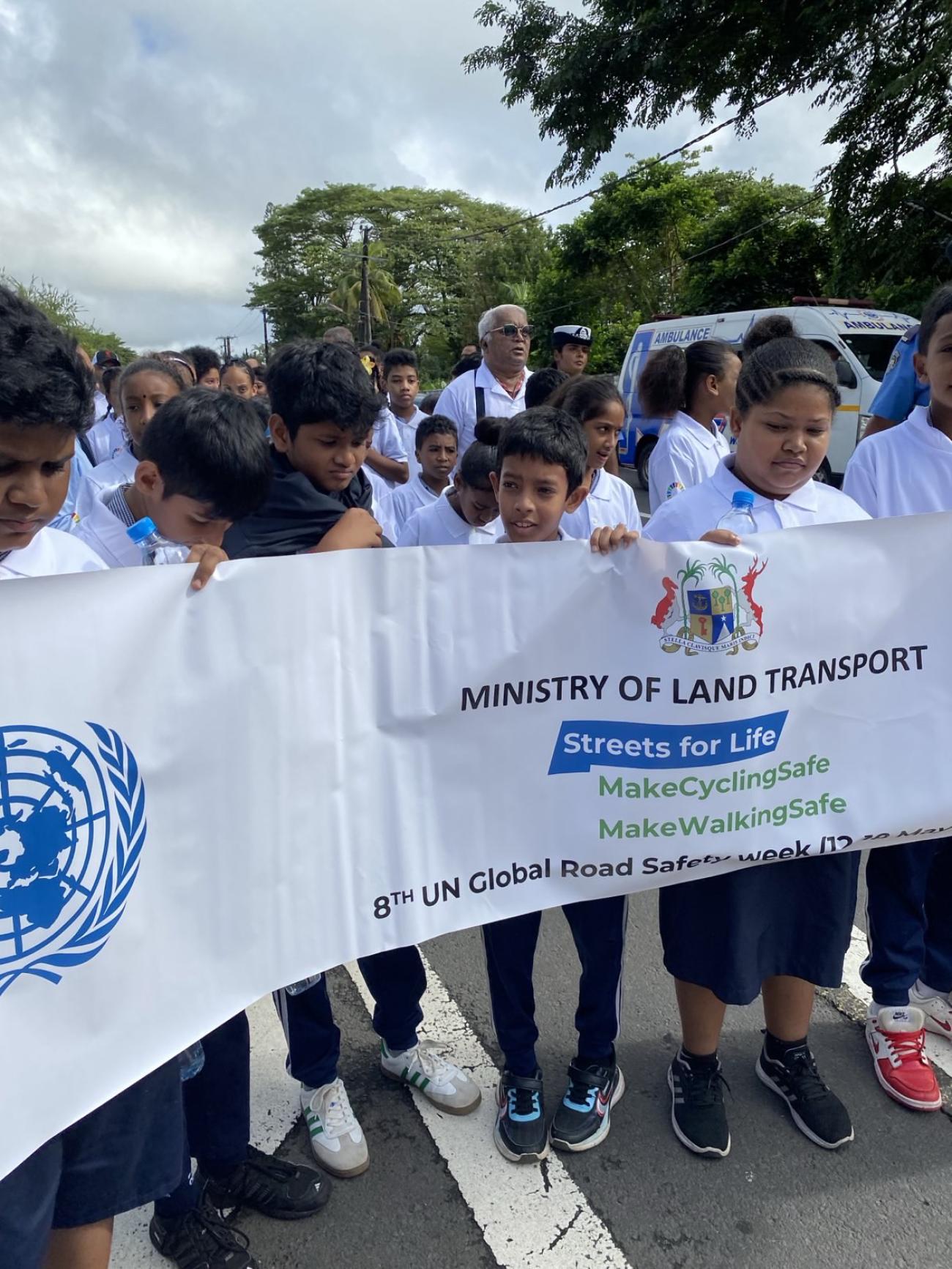Every day, road crashes claim 1.19 million lives globally—a devastating toll that impacts individuals, families, and entire communities. Mauritius is no exception, and we must confront the reality that our roads, designed to connect and enable mobility, too often become sites of tragedy.
UN Road Safety Week & Government Initiatives
This UN Road Safety Week, the United Nations, in partnership with JCDecaux, is leading the #MakeASafetyStatement campaign—a global initiative promoting safer roads and responsible mobility. But a campaign alone will not save lives. Action will.
Mauritius kicked off the 8th UN Road Safety Week with a communal road safety march, held in collaboration with the Rotary Club Rose Belle, and a wreath-laying ceremony at Gandhi Square organised by the Ministry of Land Transport. The event, attended by Hon. Osman Mahomed, United Nation's Resident Coordinator Ms. Lisa Simrique Singh, and other dignitaries, underscored the urgency of ensuring safer roads for all.
Recognising that education plays a crucial role in shaping responsible road behaviour, the Government, in collaboration with the United Nations in Mauritius, hosted several key school-based initiatives, including:
- A road safety demonstration and quiz with students at Seegoolam Torul Government School
- A “Youth Advocacy & Road Safety” session at Sookdeo Bissoondoyal State College
By instilling road safety awareness in younger generations, we can build a culture of responsible mobility that lasts a lifetime.
The Urgency of Road Safety in Mauritius
Mauritius has a road fatality rate of 10 per 100,000 inhabitants, with an alarming rise in motorcycle crashes. Pedestrians and cyclists—opting for greener, healthier mobility—face even greater risks due to high-speed traffic, a lack of dedicated infrastructure, and unsafe road conditions.
With this year’s focus on walking and cycling safety, we must recognise that sustainable transport choices for Mauritius will not only save lives but also promote public health, reduce carbon emissions, and ensure equitable mobility.
UN’s Role in Safer Roads
The United Nations system in Mauritius actively supports safer roads through policy development, infrastructure improvements, and public awareness campaigns to protect pedestrians and cyclists.
In April 2025, Jean Todt, UN Secretary-General’s Special Envoy for Road Safety, visited Mauritius to launch the UN Global Campaign for Road Safety, #MakeASafetyStatement. His visit reinforced the urgency of reducing road fatalities and highlighted Mauritius’ commitment to the Decade of Action for Road Safety.
Key Actions for Safer Roads
To truly reverse this deadly trend, Mauritius must take bold steps:
1. Lower Speed Limits: Introduce 30 km/h zones where pedestrians and cyclists mix with motorised vehicles to reduce risks and prevent collisions.
2. Dedicated Infrastructure: Build protected bike lanes, safe pedestrian crossings, and footpaths to ensure safe passage.
3. Traffic Segregation: Keep walkers and cyclists separate from fast-moving vehicles to minimise fatal crashes.
4. Helmet Safety: Promote using quality bicycle helmets to prevent severe head injuries.
The Broader Benefits of Safe Walking & Cycling
Beyond preventing crashes, safer streets transform communities by promoting public health, sustainability, and social equity:
- Health Benefits: Walking 30 minutes a day or cycling 20 minutes most days lowers the risk of heart disease, lung disease, diabetes, and cancer, reducing mortality rates by at least 10%.
- Environmental Impact: Replacing car journeys with walking or cycling cuts carbon emissions, helping Mauritius fight climate change.
- Equitable Mobility: Safer walking and cycling ensure all citizens, regardless of income, can access essential services and opportunities without relying solely on private vehicles.
Road Safety: A Shared Responsibility
The Decade of Action for Road Safety sets an ambitious target: halving global road deaths by 2030, aligned with the Sustainable Development Goals (SDG 3: Good Health & Well-being and SDG 11: Sustainable Cities & Communities).
Mauritius must not just join this mission, but lead it. Stronger policies, better infrastructure, corporate engagement, and widespread advocacy are essential to achieving this goal.
Every Mauritian Can Make a Difference
Whether as drivers, passengers, cyclists, or pedestrians, we all have a role in making our roads safer.
This UN Road Safety Week let’s not just acknowledge the problem—let’s act to build a safer Mauritius together.




